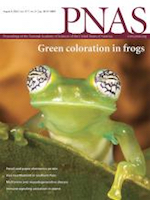 |
Corporate PR people dealing with environmental issues are getting it done, according to a survey from the Proceedings of the National Academy of Sciences.
It found that the New York Times, Wall Street Journal and USA Today favor business interests over green groups in their reporting of climate change.
The survey analyzed 1,768 press releases from business, government and environmental advocacy groups from 1985 to 2014 and nearly 35K articles on climate action.
Rachel Wetts, a sociologist at Brown University and author of the survey, found that press releases opposing climate action, which made up 10 percent of the all the releases studied, received twice as much play in the press as those proposing action.
The largest corporations and business organizations did best.
Wetts was surprised that press releases from organizations providing scientific and technical services are less likely to receive news coverage than other releases in the study, suggesting that messages from organizations with greater scientific expertise get less media attention.
She told Popular Science that she anticipated that scientists with well-informed legitimate opinions would earn more coverage than less legitimate and authoritative sources.
Wetts doesn’t appreciate the power of PR.
While president Trump cannot fulfill his promise that COVID-19 is going to "just disappear" and "sooner rather than later," he can make vanish a weekly report card on how the virus is ruining the lives of millions of Americans.
The Census Bureau is killing its “household pulse survey,” a 20-minute online questionnaire on how the disease is impacting households across the country from a social and economic perspective.
The survey asks about jobs, finances, access to food, health, housing, and schooling to gauge the ongoing crisis.
It was launched in April to “quickly and efficiently deploy data collected on how people’s lives have been impacted by the COVID-19 pandemic.”
The survey last month found than 29M Americans do not have enough food, 28M are depressed and 44M-plus reported being nervous, anxious or on edge nearly every day.
Those results don’t fit very well into the president’s re-election narrative.


 The techniques deployed by OJ Simpson's defense team in the 'trial of the century' served as a harbinger for those used by Donald Trump... People worry about the politicization of medical science just as much as they fret about another pandemic, according to Edelman Trust Barometer... Book bans aren't restricted to red states as deep blue Illinois, Connecticut and Maryland challenged at least 100 titles in 2023.
The techniques deployed by OJ Simpson's defense team in the 'trial of the century' served as a harbinger for those used by Donald Trump... People worry about the politicization of medical science just as much as they fret about another pandemic, according to Edelman Trust Barometer... Book bans aren't restricted to red states as deep blue Illinois, Connecticut and Maryland challenged at least 100 titles in 2023. The NBA, which promotes legalized gambling 24/7, seems more than hypocritical for banning player for placing bets... Diocese of Brooklyn promises to issue press release the next time one of its priests is charged with sexual abuse... Truth Social aspires to be one of Donald Trump's iconic American brands, just like Trump University or Trump Steaks or Trump Ice Cubes.
The NBA, which promotes legalized gambling 24/7, seems more than hypocritical for banning player for placing bets... Diocese of Brooklyn promises to issue press release the next time one of its priests is charged with sexual abuse... Truth Social aspires to be one of Donald Trump's iconic American brands, just like Trump University or Trump Steaks or Trump Ice Cubes. Publicis Groupe CEO Arthur Sadoun puts competition on notice... Macy's throws in the towel as it appoints two directors nominated by its unwanted suitor... The Profile in Wimpery Award goes to the Ford Presidential Foundation for stiffing American hero and former Wyoming Congresswoman Liz Cheney.
Publicis Groupe CEO Arthur Sadoun puts competition on notice... Macy's throws in the towel as it appoints two directors nominated by its unwanted suitor... The Profile in Wimpery Award goes to the Ford Presidential Foundation for stiffing American hero and former Wyoming Congresswoman Liz Cheney. JPMorgan Chase chief Jamie Dimon's "letter to shareholders" is a must-read for PR people and others interested in fixing America and living up to its potential... Get ready for the PPE shortage when the next pandemic hits... Nixing Netanyahu. Gaza carnage turns US opinion against Israel's prime minister.
JPMorgan Chase chief Jamie Dimon's "letter to shareholders" is a must-read for PR people and others interested in fixing America and living up to its potential... Get ready for the PPE shortage when the next pandemic hits... Nixing Netanyahu. Gaza carnage turns US opinion against Israel's prime minister. Trump Media & Technology Group sees Elon Musk's X as an option for those who want the free expression promised by Truth Social but without Donald Trump, owner of 57.3 percent of TMTG... Chalk one up for "anti-woke warrior" governor Greg Abbott as University of Texas lays off 60 DEI-related staffers... Five percent of Americans see the US as its own worst enemy, according to Gallup.
Trump Media & Technology Group sees Elon Musk's X as an option for those who want the free expression promised by Truth Social but without Donald Trump, owner of 57.3 percent of TMTG... Chalk one up for "anti-woke warrior" governor Greg Abbott as University of Texas lays off 60 DEI-related staffers... Five percent of Americans see the US as its own worst enemy, according to Gallup.


 Have a comment? Send it to
Have a comment? Send it to 
No comments have been submitted for this story yet.